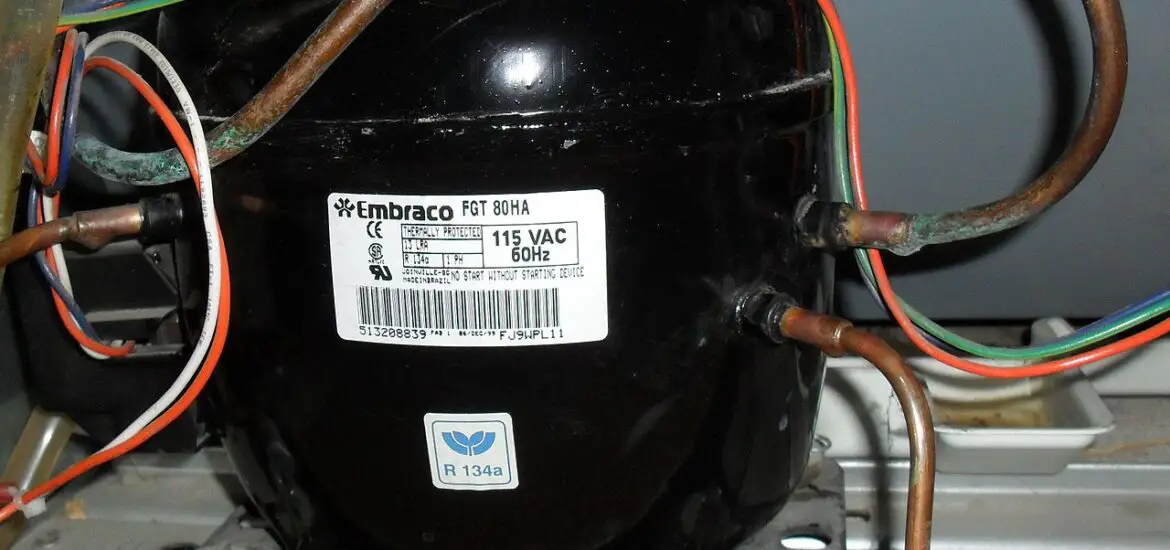Will compressor run without Freon? Now there’s a question that makes us appreciate the complexities behind our everyday conveniences, right? Refrigeration is like magic, but of course, there’s a whole lot of science and machinery behind that frosty glass of lemonade you just pulled out from your fridge. One key player? The refrigerator compressor. But let’s not rush ahead of ourselves. Grab a cuppa, sit back, and let’s take a journey together through the guts of your refrigerator.

Table of Contents
Overview of Refrigerator Compressors
So, what is a refrigerator compressor? In the simplest of terms, it’s the heart of your refrigerator. Much like the human heart, the compressor has one important job – keep the refrigerant (in most cases, Freon) moving. By compressing the Freon gas, it pushes it through the coils of the fridge, initiating a magical cooling dance that we rely on every day.
Function of Freon in a Compressor
But why Freon? What’s so special about this gas? Well, Freon is a brand name for a type of refrigerant known for its amazing ability to cool when compressed and heated. Think of Freon as the blood in our heart analogy – it carries the chill throughout your fridge, making sure your food stays fresh and your drinks stay cool. Now, can you imagine a heart without blood?
Can a Compressor Run Without Freon? Quick Answer
The simple answer is yes, a compressor can technically run without Freon, but it’s a bit like a heart pumping without any blood. The compressor will run, but the refrigerator won’t cool. Even worse, running without Freon can cause serious damage to the compressor, leading to costly repairs or even a full fridge replacement. So, no Freon, no fun!
Check out these other related articles…
Refrigeration Compressor Oil: Your Ultimate Guide
Refrigerator Compressor Fire: Everything You Need to Know
Ice on Refrigerator Compressor Line: Causes & Solutions
Compressor Efficiency Test: Your Essential Guide
Efficiency of Compressor Formula: Your Comprehensive Guide
Detailed Analysis
Understanding the Refrigeration Cycle
You’re probably wondering how all this magic happens, right? It all begins with our hero, the compressor, which compresses the Freon gas and sends it on its journey through the coils. As the compressed Freon gas cools and changes into a liquid, it absorbs heat from the refrigerator’s interior. This heat is then released outside the fridge, and the cycle starts all over again. It’s a beautiful, continuous dance – unless our Freon dancer decides to sit one out.
Effect of Lack of Freon on the Compressor
What would happen if your compressor lacks freon? Let’s find out.
Performance Implications
Without Freon, the dance stops. The compressor will keep running, sure, but without any Freon to compress, there won’t be any cooling. It’s like throwing a party but forgetting to invite the guests. The music’s playing, but there’s no one to dance. Your food and drinks? They won’t be enjoying the party either.
Potential Damage to the Compressor
And what about our hardworking compressor, stubbornly pumping away with no Freon to push? Running without Freon could cause the compressor to overheat, leading to potentially irreversible damage. Imagine a heart pumping away in a frenzy without any blood – it’s not a pretty picture, is it? This kind of operation is not only pointless but downright destructive, likely leading to costly repairs or even a total fridge replacement.
Identifying a Freon Leak
So, how do you know if your fridge’s heart is running on empty? There are a few telltale signs of a Freon leak, and they’re all pretty straightforward. Is your fridge not cooling as it should? Are your leftovers lukewarm instead of cold? These could be signs that your fridge is lacking Freon, and the compressor is running on fumes.
What to Do If You Suspect a Freon Leak
Think you’re dealing with a Freon leak? Don’t play the guessing game; it’s time to call in the pros. They’ll be able to tell if your fridge is running low on Freon and whether there’s a leak. Freon isn’t something you want to handle yourself; it’s a job best left to professionals.